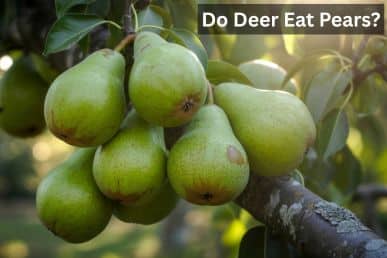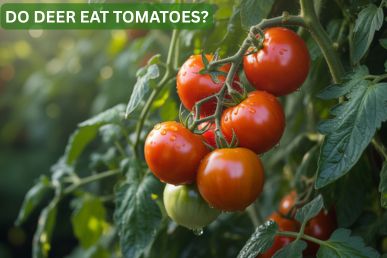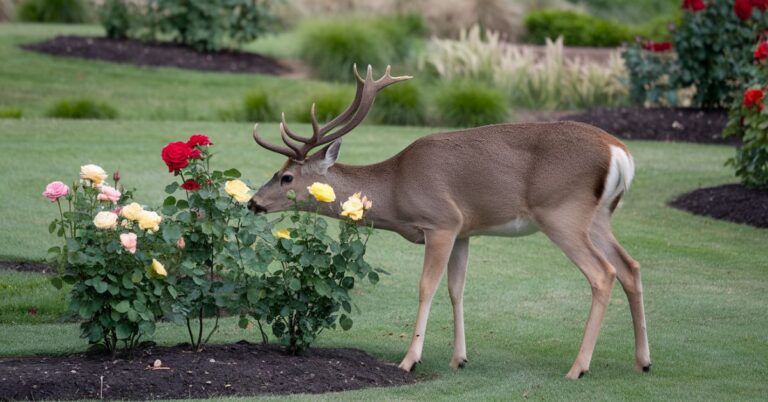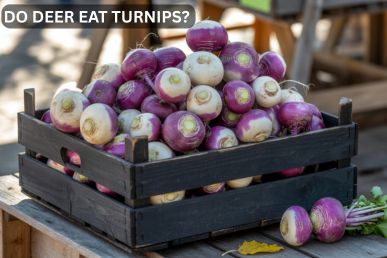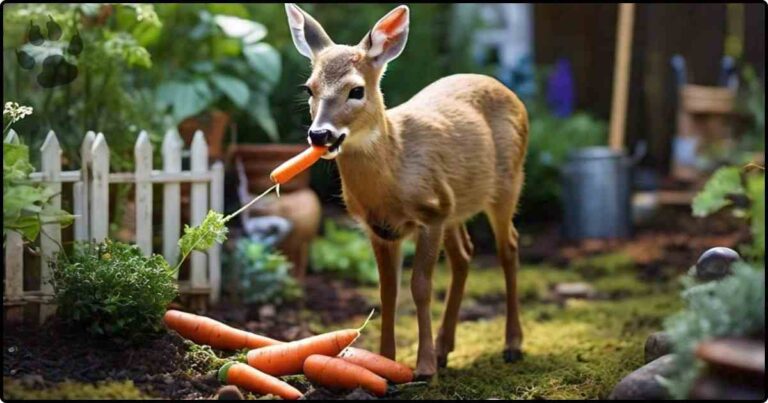Do deer eat almonds? Shocking Damage and How to Stop It
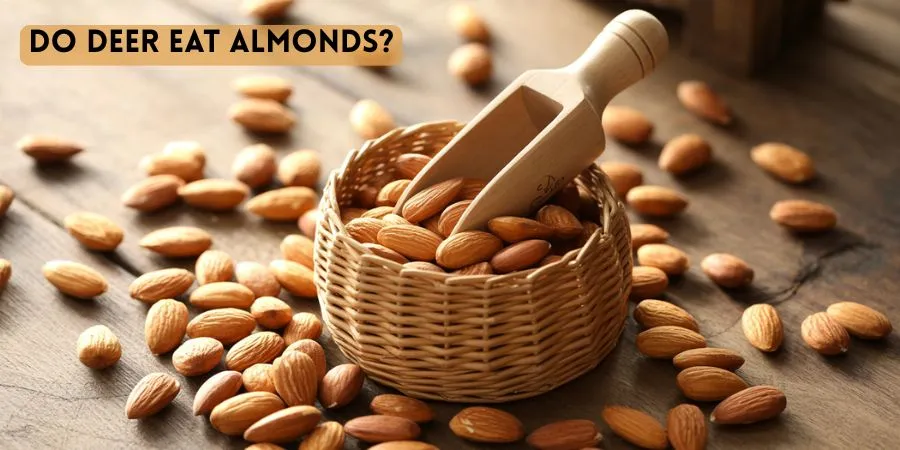
Picture those majestic, graceful deer wandering near your yard. You might wonder, do they eat things like almonds? It’s a common question—do deer eat almonds?. This article explores that very habit. Deer are animals that love eating many plants, including fruits and nuts.
Almond trees, especially the sweet kind that people grow for food, produce edible nuts. These trees are deciduous, losing leaves in fall, and are originally native to places like Iran. Now, huge numbers are cultivated in the US, especially in California.
While deer mostly eat wild plants, they might nibble on growing almonds if found near woods or fields. There are different species of almonds; bitter ones aren’t good for eating. So, if present, deer might try cultivating almond trees, raising the chances of some damage to this property.
Almonds at Risk: How Deer Threaten Orchard Health
Deer absolutely loves munching on almonds, making them a favorite snack, especially when other food is scarce during late winter and early spring. They’ll happily eat nuts found on the ground.
But hungry deer don’t stop there! To reach tasty almonds still on the tree, they often stretch up on their hind legs. They use their mouths to rip, twist, and pull at branches, sometimes even giving them a squeeze.
This isn’t just about grabbing nuts; it also damages the tender tips and new shoots. All this munching and pulling can really harm the almond tree, reducing the farmer’s yield come harvest time.
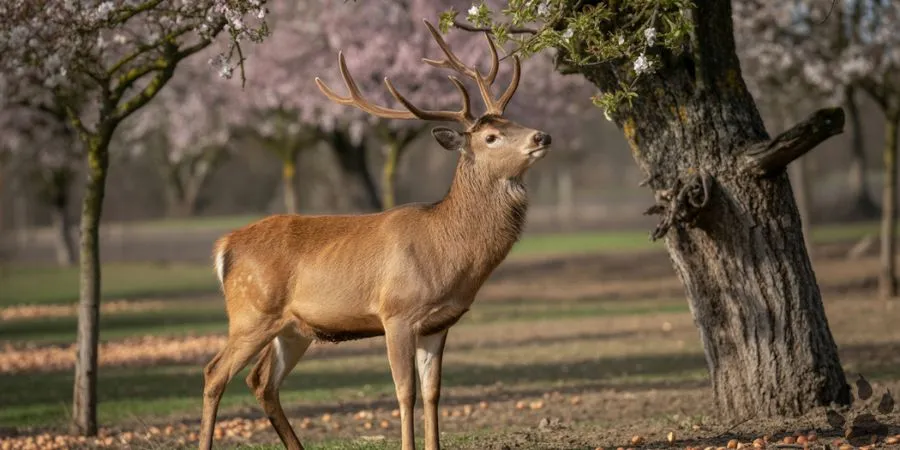
Besides eating, deer cause other problems. Almond orchards offer nice, cool shade under the trees, a perfect spot for resting. While hanging out, deer have a pastime of rubbing their antlers against the trunk and branches.
This rub scrapes off the bark. If they rub too much and make a complete ring around the trunk, the tree becomes girdled. This is very bad news because a girdled tree can’t move water and food properly and will eventually die.
So, farmers really need to implement smart measures to keep their precious almond trees safe from these hungry visitors!
How to protect your almonds from deer?
It’s a common question among growers: Do deer eat almonds or just damage the trees? Either way, protecting your almond trees is important, and here are some simple ways to do it.
1. Avoid over-fertilization

Be careful with how much plant food (fertilization) you add near your almond trees. Using too much (over-fertilization) is excessive and not recommended.
Why? It pushes plants, including weeds and grass (vegetation), into super-fast growth, especially because of the extra nitrogen. This thick, juicy growth becomes like a giant dinner bell for deer, acting as a powerful attractant.
Deer are easily attracted to this lush buffet. All their energy goes into munching this greenery instead of helping your trees make fruits, like almonds. It wastes the nutrient value meant for your trees and can actually lower your almond production.
Plus, using such a huge volume of fertilizer is a big expense for you! So, the smart use of fertilizer is key.
2. Stop Antler Rubbing Before It Starts
Keep the area around your almond trees free of weeds and tall grasses where deer like resting. Avoid placing mulch right against the tree trunk to stop rubbing damage.
3. Protect Young Almond Trees Individually
For individual young almond trees, create simple protection:
- Using special netting or mesh, form a cylinder.
- Wrap this cylinder around the tree’s trunk to act as a trunk guard.
- This helps keep hungry deer away from the bark and branches.
A product like this flexible tree guard makes it easy to protect young almond trees from bark damage without limiting growth. 👉 Check it out on Amazon
4. Repel Deer Using Scent-Based Solutions

Deer really dislike strong smells, so people use special repellents to keep them away from gardens or trees. You can find commercial sprays at stores, but it’s also fun to make homemade versions!
This ready-to-use deer repellent spray keeps them away without harming your trees. 👉 See it now on Amazon
Try hanging bar soap around—its scent confuses deer. Or whip up a simple pepper spray using water and soap mixed with a cayenne pepper mixture; just spray it on leaves.
Another idea? Crush garlic and spread it near plants—it’s stinky but works great! These tricks help protect your home goodies without hurting animals.
5. Use Proper Fencing as Your Best Line of Defense
So, you want to keep those curious deer off your property and away from your almond trees? Good fencing is the most tangible way to prevent them from going where they shouldn’t.
Forget a short fence; even one 5–6 feet tall is often useless. Deer can easily jump over it! An 8-foot fence is much more ideal if you’re serious about preventing access.
A durable 8-foot deer fence kit like this one provides effective long-term protection for your orchard areas. 👉 See price on Amazon here
Some folks find an electric fence cheaper and less obtrusive than a tall conventional wall, helping it blend with a natural-looking landscape.
Whichever type you consider, ensure it’s firmly secured and rooted in the ground to prevent deer from pushing underneath. Proper maintenance is key to helping it stay effective.
Trust me, I’ve seen flimsy fences fail! Getting this right saves you major headaches associated with deer damage and keeps them out for good.
What nuts do deer like?
Deer consume many wild nuts when available, finding them especially beneficial during colder months for building crucial fat reserves.
They absolutely enjoy energy-packed acorns, particularly from white oaks, and readily eat beechnuts, hickory nuts, pecans, chestnuts, and walnuts.
While almonds, peanuts, and cashews are sometimes eaten, especially near human spaces, they aren’t their top pick like natural forest nuts.
These foods are valuable because they’re rich in fat and oil, giving deer the energy they need to stay warm and healthy through winter.
Conclusion:
Want to stop deer from munching on your almond trees? Since deer eat almonds, they can become a real nuisance! You might be asking yourself, “Do deer eat almonds?”—and as we’ve explored, they certainly can.
But don’t worry—you can prevent and limit deer damage by using the simple methods we’ve discussed, like fences or repellents. Just remember to combine these tricks prudently (that means carefully!), and always take care of your specific deer situation to keep everyone safe and happy.
Frequently Asked Questions:
Are almonds ok for deer?
Deer can be picky, but they do eat almonds sometimes. Like other nut varieties (think cashews), almonds offer a source of protein. This can boost their energy, especially in colder months. They might prefer organic options when available.
What nuts do deer like the most?
Hunters and studies see deer love acorns! They are a top favorite nut. Deer also really prefers chestnuts. Why? These nuts give deer energy (40% carbohydrates) and help them grow strong (10% protein). While acorns can taste bitter from tannins, deer still munch them happily, unlike turkeys, who avoid that taste.
Do whitetail deer eat almonds?
While not their top choice, whitetail deer will consume almonds if they find them, especially when other food is scarce, like in the colder months. These nuts offer protein and energy, helping meet their nutritional needs. Their diet changes based on food availability across their range and almonds are known to be a possible source of food.



